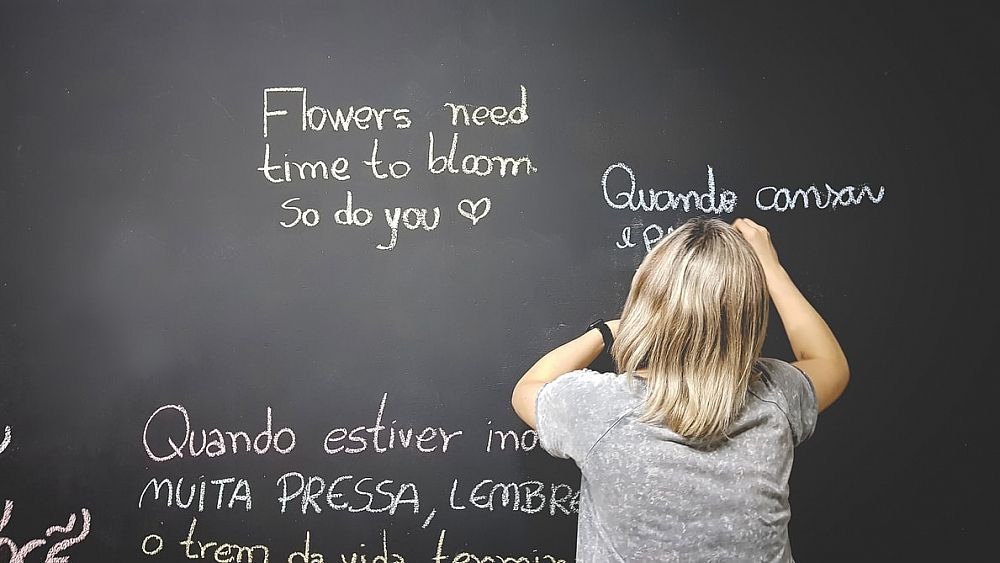Personal Teaching Experience and What Factors Influence it

I taught high school and college-level Spanish. I taught language for about 20 years. I learned many things throughout my tenure as a teacher. There are many traits and characteristics that I found useful in my career.
Table of Contents
The first of these is Creativity
Secondly, I found that an effective teacher must be a good communicator
Another trait that I found very useful in the classroom was patience
Humor is a trait I found useful in the classroom
Lastly, I would like to talk about flexibility
Do you want to teach English abroad? Take a TEFL course!
This post was written by our TEFL certification graduate Keith B. Please note that this blog post might not necessarily represent the beliefs or opinions of ITTT.
The first of these is Creativity
As a language teacher especially, I had to find new fun ways to make use of everyday items for the benefit of my students. I would incorporate realia, real everyday objects, into the lessons that I taught. For example, teaching foods I would bring as many real fruits and vegetables into the class. I have learned that the more senses you can involve in the learning process the better. I would bring in and share with the class different types of fruits that many of my students had never tried. As the students handled, smelled, and tasted the fruits, I would use the names of these items to describe their color, shape, and origin. This would be one of the favorite lessons that I would use. We then would create menus, go shopping in the grocery store, and eat in a restaurant.
Secondly, I found that an effective teacher must be a good communicator
Communication is more than just standing in front of the class lecturing. I found that you need to create an environment where students feel comfortable to speak, ask questions, and express concerns. Being able to listen to students and to find ways to help them learn to learn. I found that I needed to be a good clear talker. In the language classroom, you are the example many of them will follow. You must know your subject and be confident to be able to teach.
Also Read: How do online TEFL courses work?
Another trait that I found very useful in the classroom was patience
I learned that you must allow students to learn at their speed and ability. Many of your students come from varying backgrounds and cultures. Students would have problems understanding and hinder the learning experience. I found that being patient understanding that there might be problems such as producing certain sounds, grammar differences from native languages. I liked to call these things a language learning roadblock. I knew ahead of time which areas might cause them trouble. This helped me to recognize those times when I knew I might need to slow down or explain a little more. I found that once a student could get pass this, they were able to carry on. If you move on without understanding that at certain points there will be roadblocks, there will fracture in the foundation of their language learning. Patience is very important.
Humor is a trait I found useful in the classroom
Sometimes you need to be able to laugh at yourself. Learning a language shouldn't be so serious. I tried to teach them that it was ok to make errors and that sometimes it could be quite funny. This has much to do with the attitude of the teacher. This will carry over to the class as well. The amount of enthusiasm you share is needed in the language learning classroom. Students need to be able to laugh and have fun. In learning language, a student needs to feel comfortable and enjoy learning deeply. I tried to come into the classroom every day with a smile. I would try to tell some silly jokes. These kinds of icebreakers can open the affective filters that are present in language learning. You don't have to create a circus, but you do need to make students comfortable in their environment.
Also Read: Should I take a TEFL course online or in a classroom?
Lastly, I would like to talk about flexibility
In the classroom, there can be many distractions. In the public-school system, there are always meetings, announcements, and drama. You must be able to move fluidly. Many new administrators will want you to stick to a minute by the minute lesson plan. This is never possible. In my classroom, I tried to have lesson plans based on the topics I needed to cover. I would then very time depend on the pace that my class set. I tried to not get excited if one class would take a little longer with a project or subject than another. Flexibility is needed as well to deal with the changes in technology. I tried to use the best of all the things in my class.
Do you want to teach English abroad? Take a TEFL course!
In conclusion, my years of teaching taught me that I was showing students how to learn. I wanted to create a lifelong learner. I tried to prepare them with the knowledge that they could use to carry on their learning. I wanted to teach my students to be understanding of other cultures. I tried to teach them to not be afraid because you don't understand something. All the traits I found useful have helped me to be the person that I am today.
- 10 Tips to Help You Enjoy Your TEFL Course
- 7 Fun Activities for Teaching Vocabulary in the ESL Classroom
- Differences in Teaching Monolingual and Multilingual EFL Groups
- Why Taking a TEFL Course Is Highly Beneficial
- How To Write The Perfect ESL Lesson Plan
- 8 Amazing Things You Can Do with a TEFL Certificate




